Woman Sues an Arizona City Over Arrest for Feeding Homeless People Home-Cooked Meals in a City Park
Bullhead City accused of “criminalizing kindness."
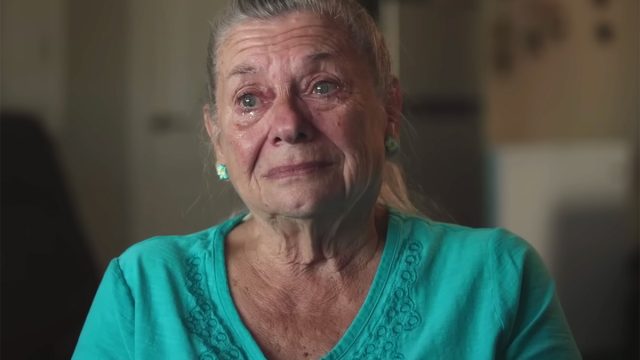
A woman is suing Bullhead City, Arizona after she was arrested for feeding homeless people home-cooked meals in a city park earlier this year. She says her 14th Amendment rights have been violated. Her attorney calls it “criminalized kindness.” Norma Thornton, 78, has been serving homeless people food in a city park since 2018. Last March, she was arrested.
Police said Thornton was violating a city ordinance, passed in 2021, that restricts sharing food for “charitable purposes” at a public park. “Norma, and the rest of Americans, really, have a right to engage in charitable acts,” Diana Simpson, Thornton’s attorney, told USA Today. “And that includes the right to sharing food.” Read on to find out what happened.
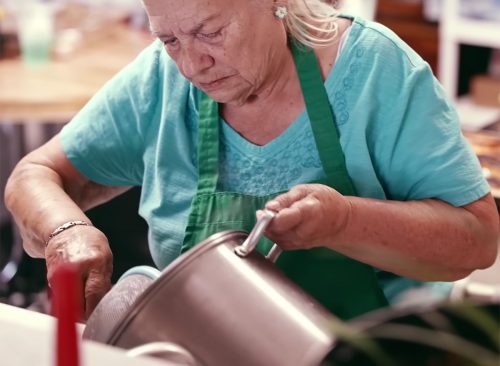
Thornton ran a diner in Washington state for 20 years before she retired in 2017 and moved south, seeking warmer weather. According to her lawsuit, while exploring Bullhead City, she met homeless people and poor residents in Community Park and decided to help out by making batches of food at home and serving it at the park.
Thornton always included protein, fruits, and vegetables in her meals, hoping to provide healthy nourishment that tasted good. She spends about half her Social Security check on meals, serving about 30 people each time. Thornton spent about two hours a day setting up, serving meals, and cleaning, and always aimed to leave the park cleaner than she found it, the lawsuit says.
“Norma hoped that her efforts would not only keep people alive but also help them turn things around,” her lawsuit says. “Moreover, Norma hoped her example could inspire her community to do more to help those in need.” “This case is about kindness,” Thornton’s attorney, Suranjan Sen, told KPHO. “Bullhead City has criminalized kindness.”

Bullhead City claims the ordinance is legal, and officials say volunteers can still serve certain foods to the hungry at the park. In a statement, officials said the city’s ordinance allows people to distribute “sealed prepackaged foods readily available from retail outlets and intended for consumption directly from the package.” Anyone who wants to serve unsealed, prepared food must apply for a food handler’s permit.
“The City takes the safety of its vulnerable populations seriously, and works to ensure that the food provided to the homeless, as with other members of the public, has been prepared, handled, and served in a safe and responsible manner,” officials said in a statement. Bullhead City’s mayor, Tom Brady, noted that people can serve food to any homeless person at their home, church, or on private property. “Our ordinance applies to public parks only,” he said.
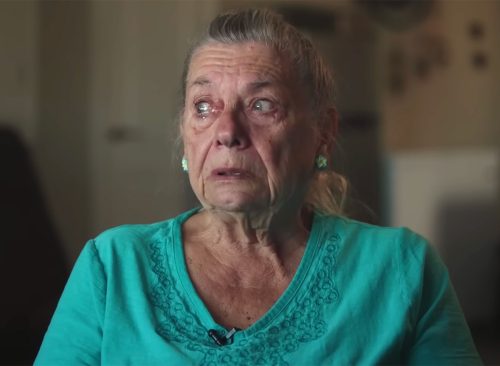
The city passed the ordinance in February 2021, reacting to complaints. The ordinance said that employees of several city departments had repeatedly cleaned up “human waste, litter, trash and other debris left over from the food sharing events.” It’s part of a larger effort to clean up homeless encampments in the city.
“These activities have resulted in a deterioration of the condition of public property and negatively affect use of parks by other patrons,” the ordinance says.
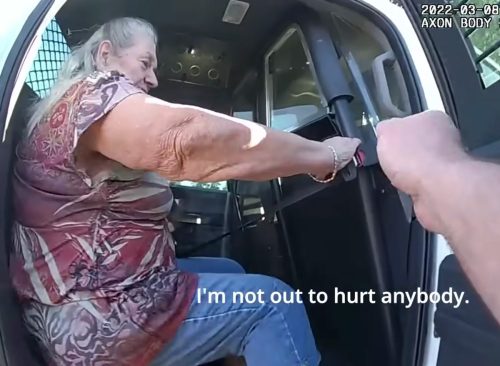
In a Facebook post, Police Chief Robert Trebes said he and his officers spent nine months notifying people about the ordinance without making arrests. Officers tell homeless people about available social services and drive them to shelters, instead of “enabling them by just leaving them where they are and bringing them things,” he said.
“When incidents like this occur, where citizens, even well meaning, violate the law, it becomes counterproductive to what we are trying to accomplish with this vulnerable population,” the chief said. “We want them to get help to get out of their situation, not keep them in it.”
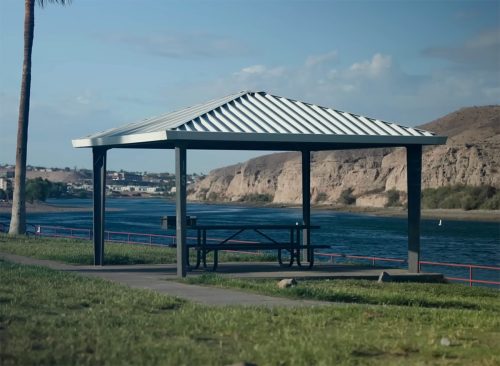
Bullhead City dropped the charges against Thornton in the summer. They said she didn’t know about the ordinance, but if she continued to serve food in the park, she wouldn’t be able to use that defense. Thornton is still serving food four or five times a week, but she does it on the property of a small business owner who volunteered the space.
But Thornton told the Washington Post it’s not as good a spot as the park—there are no tables or benches, and there’s no shade from the sun. She said she’s suing to return to the park, a better place to help people. “Food is a way to show love,” she said. “Golly, I don’t know, it’s just always been that way.”














